Collective Molecular Activities of the Plant: Liriope Muscari

Plant ID: NPO5275
Plant Latin Name: Liriope Muscari
Taxonomy Genus: Liriope
Taxonomy Family: Asparagaceae
Plant External Links:
NCBI TaxonomyDB:
39529
Plant-of-the-World-Online:
n.a.
Country/Region:
South Korea; ChinaTraditional Medicine System:
TCMMedicinal Functions:
Antiinflammatory; Aphrodisiac; Pectoral; Stimulant; Tonic
South Korea; China
Overview of Ingredients
37 All known Ingredients in Total
Unique ingredients have been isolated from this plant.Plant-Ingredients Associations were manually curated from publications or collected from other databases.
18 Ingredients with Acceptable Bioavailablity
Unique ingredients exhibit acceptable human oral bioavailablity, according to the criteria of SwissADME [PMID: 28256516] and HobPre [PMID: 34991690]. The criteria details:SwissADME: six descriptors are used by SwissADME to evaluate the oral bioavailability of a natural product:
☑ LIPO(Lipophility): -0.7 < XLOGP3 < +5.0
☑ SIZE: 150g/mol < MW < 500g/mol
☑ POLAR(Polarity): 20Ų < TPSA < 130Ų
☑ INSOLU(Insolubility): -6 < Log S (ESOL) < 0
☑ INSATU(Insaturation): 0.25 < Fraction Csp3 < 1
☑ FLEX(Flexibility): 0 < Num. rotatable bonds < 9
If 6 descriptors of a natural plant satisfy the above rules, it will be labeled high HOB.
HobPre: A natural plant ingredient with HobPre score >0.5 is labeled high human oral availability (HOB)
10 Ingredients with experimental-derived Activity
Unique ingredients have activity data available.Ingredient Structrual Cards
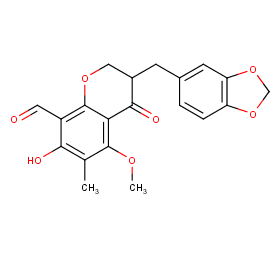
Ingredient ID: NPC92583
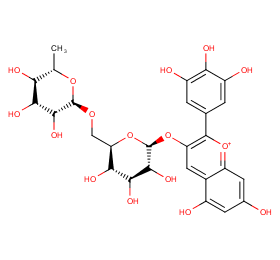
Ingredient ID: NPC84955
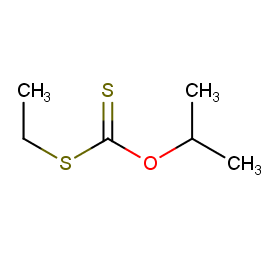
Ingredient ID: NPC72760
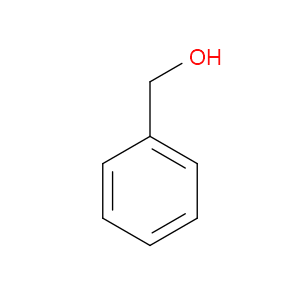
Ingredient ID: NPC66655
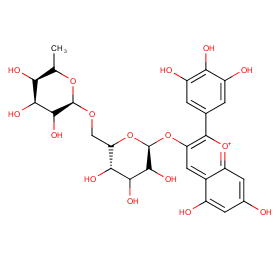
Ingredient ID: NPC63902
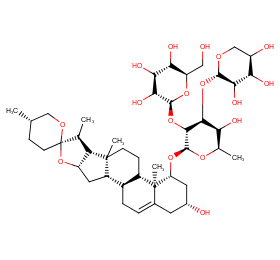
Ingredient ID: NPC6162
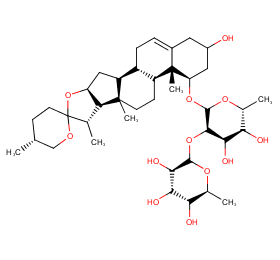
Ingredient ID: NPC54801
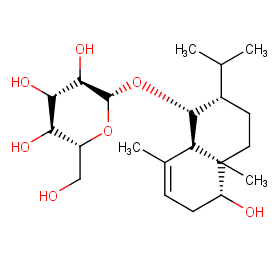
Ingredient ID: NPC53310
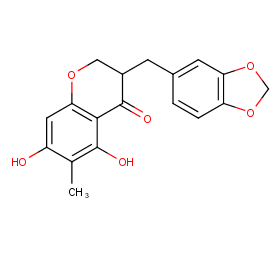
Ingredient ID: NPC5325
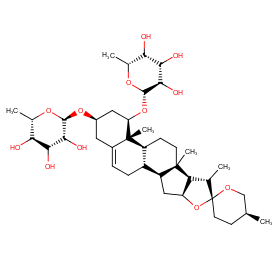
Ingredient ID: NPC50021
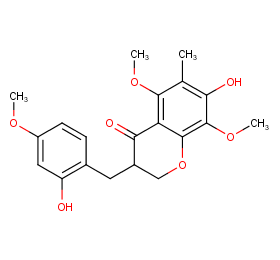
Ingredient ID: NPC49745
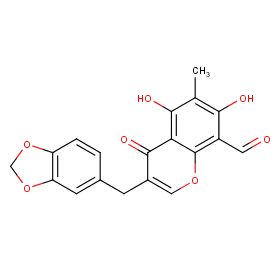
Ingredient ID: NPC49206
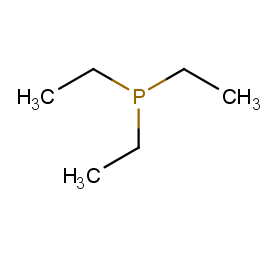
Ingredient ID: NPC41241

Ingredient ID: NPC41161
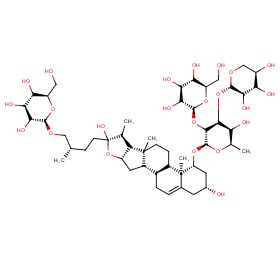
Ingredient ID: NPC299566
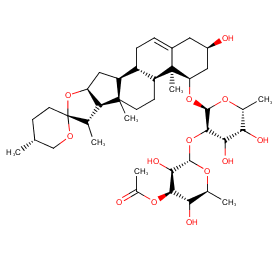
Ingredient ID: NPC297692
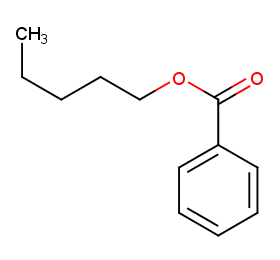
Ingredient ID: NPC277335
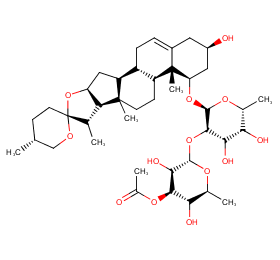
Ingredient ID: NPC274632
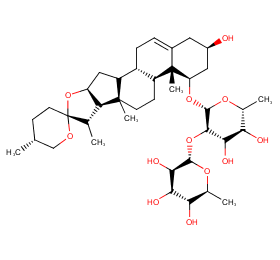
Ingredient ID: NPC26651
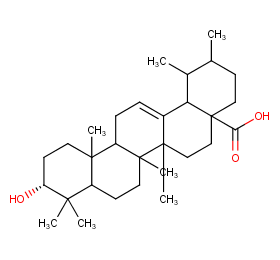
Ingredient ID: NPC264711
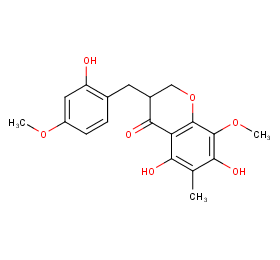
Ingredient ID: NPC259001
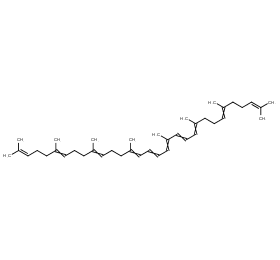
Ingredient ID: NPC257235
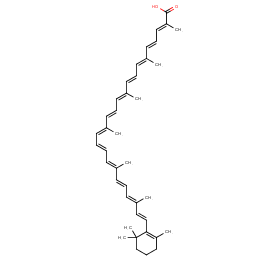
Ingredient ID: NPC254886
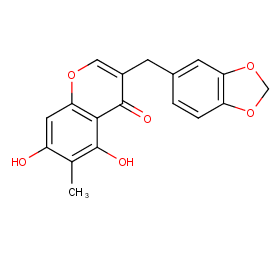
Ingredient ID: NPC249455
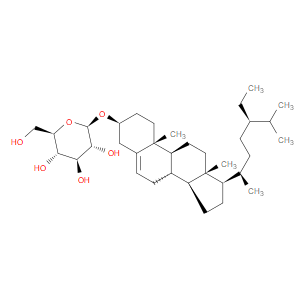
Ingredient ID: NPC243728
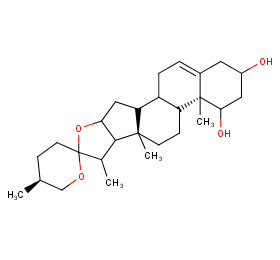
Ingredient ID: NPC241669
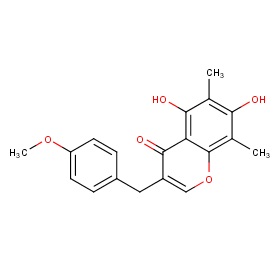
Ingredient ID: NPC233051
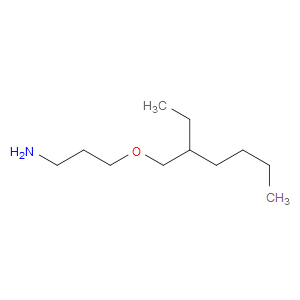
Ingredient ID: NPC222078
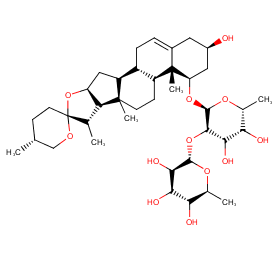
Ingredient ID: NPC200802
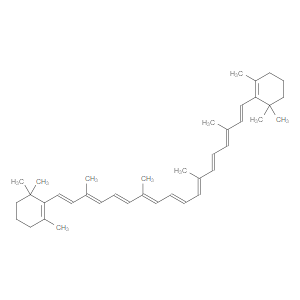
Ingredient ID: NPC17810
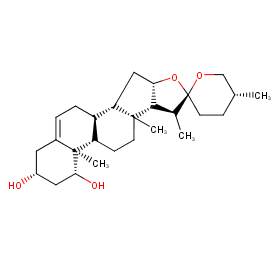
Ingredient ID: NPC177818
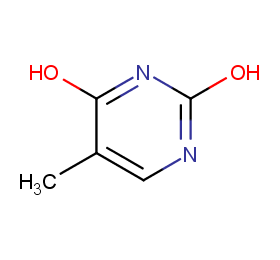
Ingredient ID: NPC163105
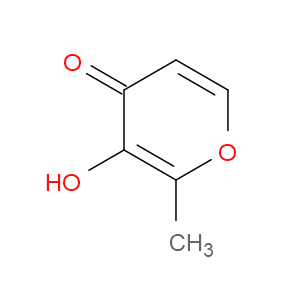
Ingredient ID: NPC158853
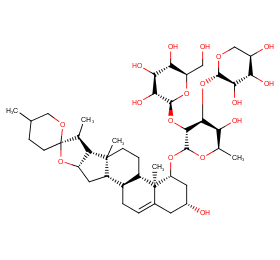
Ingredient ID: NPC139695

Ingredient ID: NPC13189
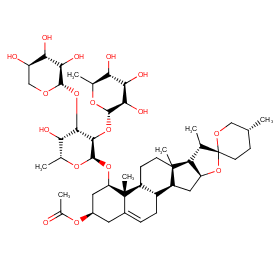
Ingredient ID: NPC131339
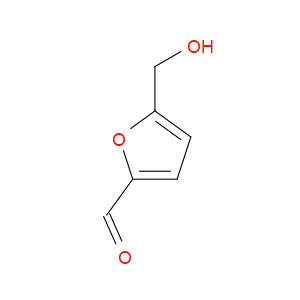
Ingredient ID: NPC107482
Classification of Human Proteins Collectively Targeted by the Plant
Detailed Information of Target Proteins
| Target Type | Protein Class | Gene ID | Protein Name | Uniprot ID | Target ChEMBL ID |
|---|---|---|---|---|---|
| Drug Transporter | SLC superfamily of solute carriers | SLCO1B1 | Solute carrier organic anion transporter family member 1B1 | Q9Y6L6 | CHEMBL1697668 |
| Therapeutic Target | Peptide receptor (family A GPCR) | TSHR | Thyroid stimulating hormone receptor | P16473 | CHEMBL1963 |
Clinical trials associated with plant from natural product (NP) & plant level:
| Clinical trials type | Number of clinical trials | |
|---|---|---|
| 12 | ||
| NCT ID | Title | Condition | Form in clinical use | Associated by plant or compound |
|---|---|---|---|---|
| NCT00000152 | Randomized Trial of Beta-Carotene and Macular Degeneration | macular degeneration | Beta Carotene (NPC17810) | |
| NCT00000161 | Randomized Trials of Vitamin Supplements and Eye Disease | cataract;macular degeneration | Beta Carotene (NPC17810) | |
| NCT00000541 | Women's Antioxidant and Folic Acid Cardiovascular Study (WAFACS) | myocardial infarction;Myocardial Ischemia | Beta Carotene (NPC17810) | |
| NCT00275418 | Beta Carotene From Natural Source for Patients With Non-Active Crohn's Disease | Crohn's disease | Beta Carotene (NPC17810) | |
| NCT01597401 | A Single Dose Study of the Safety, Blood Levels and Biological Effects of Aes-103 Compared to Placebo in Subjects With Stable Sickle Cell Disease | sickle cell anemia | 5-Hydroxymethyl-Furfural (NPC107482) | |
| NCT01871142 | Evaluation of the Attenuation by Aes-103 of Hypoxia Mediated Decrements in Endurance Exercise Performance | hypoxia | 5-Hydroxymethyl-Furfural (NPC107482) | |
| NCT01987908 | Evaluation of Different Dose Regimens of Aes-103 Given for 28 Days to Subjects With Stable Sickle Cell Disease | sickle cell anemia | 5-Hydroxymethyl-Furfural (NPC107482) | |
| NCT02624843 | Bioequivalence Study for Benzyl Alcohol Lotion 5%. | lice infestation | Benzyl Alcohol (NPC66655) | |
| NCT03181451 | Evaluate the PK, Safety, Tolerability of Ferric Maltol at 3 Dosage Levels in Paediatric Subjects With Iron Deficiency | Iron deficiency anemia | Maltol (NPC158853) | |
| NCT04626414 | Four-Way Crossover Study to Compare Ferric Maltol Capsules and Oral Suspension in Healthy Volunteers | Iron deficiency anemia | Maltol (NPC158853) |
❱❱❱ Associated Human Diseases and Detailed Association Evidence
How do we define the Plant-Targeted Human Disease Association?
Associated human diseases of an individual plant are summurized based on FOUR types of association evidence, these include:
❶ Association by Therapeutic Target: Bioactive protein targets of the plant were defined in "Molecular Targets" section, target-disease associations collected from TTD database were subsequently used to build the associations between the plant and its targeted human diseases.
❷ Association by Disease Gene Reversion: Plant and a specific disease will be associated when >= 1 plant target gene overlaped with disease's DEGs.
❸ Association by Clinical Trials of Plant: Plant and a specific disease will be associated when >= 1 clinical trial (the plant is the intervetion) can be matched in ClinicalTrials.gov database.
❹ Association by Clinical Trials of Plant Ingredients: Plant and a specific disease will be associated when >= 1 clinical trial (the plant ingredient is the intervetion) can be matched in ClinicalTrials.gov database.
Associated Disease of the Plant | Association Type & Detailed Evidence |
|---|---|
Adenocarcinoma of bronchus or lungDisease Category: 02.NeoplasmsDisease ICD-11 Code: 2C25.0 |
TSHR,SLCO1B1
|
Adenocarcinoma of prostateDisease Category: 02.NeoplasmsDisease ICD-11 Code: 2C82.0 |
SLCO1B1
|
Adenocarcinoma of stomachDisease Category: 02.NeoplasmsDisease ICD-11 Code: 2B72.0 |
SLCO1B1
|
AnemiaDisease Category: 03.Diseases of the blood or blood-forming organsDisease ICD-11 Code: 3A00-3A9Z |
NCT05126901
|
AsphyxiaDisease Category: 21.Symptoms, signs or clinical findings, not elsewhere classifiedDisease ICD-11 Code: MD11.1 |
NCT01871142
|
Carcinosarcoma of uterusDisease Category: 02.NeoplasmsDisease ICD-11 Code: 2C76.43 |
TSHR
|
CataractDisease Category: 09.Diseases of the visual systemDisease ICD-11 Code: 9B10 |
NCT00000161
|
Coeliac diseaseDisease Category: 13.Diseases of the digestive systemDisease ICD-11 Code: DA95 |
TSHR
|
Colorectal cancerDisease Category: 02.NeoplasmsDisease ICD-11 Code: 2B91 |
NCT05177484
|
Crohn diseaseDisease Category: 13.Diseases of the digestive systemDisease ICD-11 Code: DD70 |
NCT00275418
|

